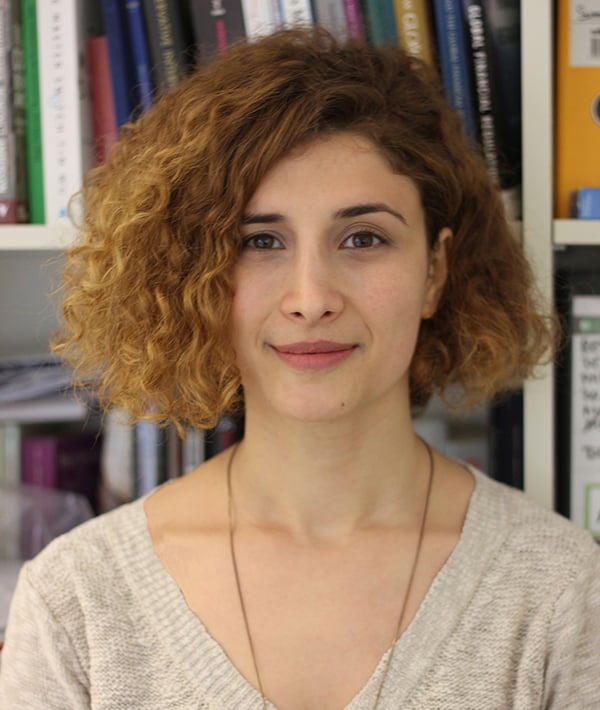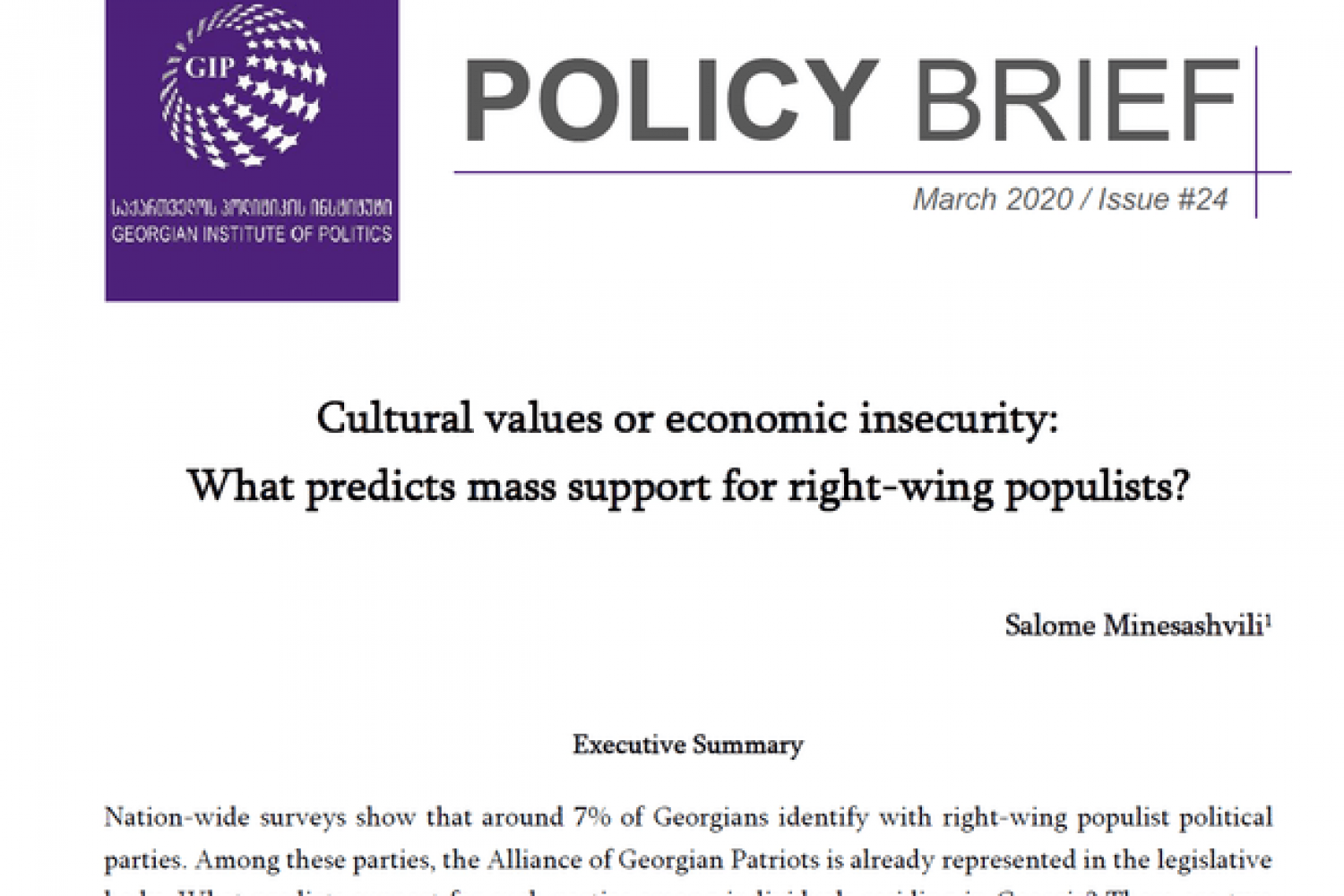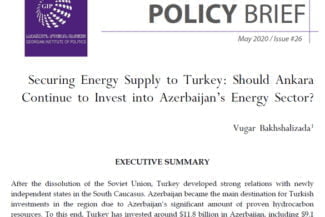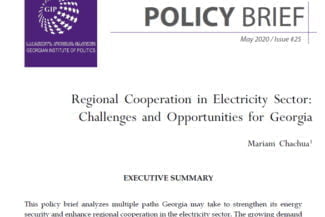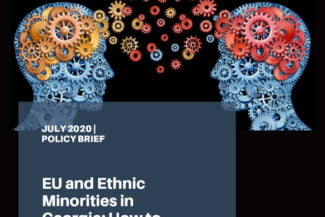06-03-2020
Nation-wide surveys show that around 7% of Georgians identify with right-wing populist political parties. Among these parties, the Alliance of Georgian Patriots is already represented in the legislative body. What predicts support for such parties among individuals residing in Georgia? There are two major theories for the rising right-wing populism in the Western countries: cultural backlash and economic insecurity. The economic perspective focuses on transforming societal structures in the post-industrial economy, which have created segments of society that feel left-behind, economically disadvantaged and insecure and, as a result, have become the primary supporters of populists. The cultural thesis sees such support as a response from the groups who were once predominant but now feel estranged due to changing values in society. In order to test the two theories, this paper analyses nation-wide opinion polls via regression models. Results show that elements from both theses partially explain voters’ preference for right-wing populist parties. Firstly, the findings show a generation gap as people over the age of 56 tend to support such parties more than younger people. Moreover, subjective feelings such as economic security, nostalgia for the Soviet Union and opposition to the EU and NATO membership are strong predictors for preference of nationalist populists.



